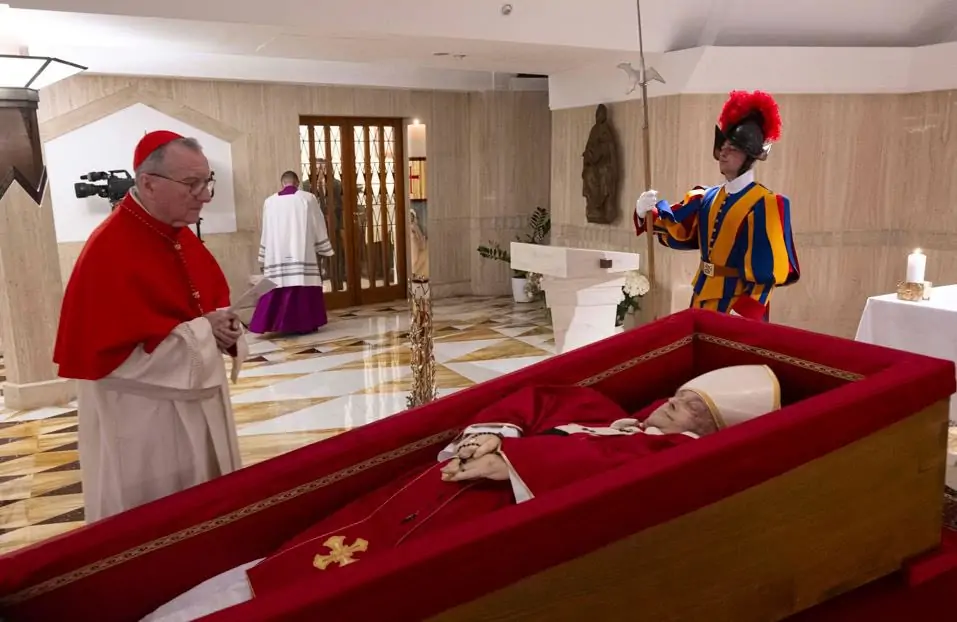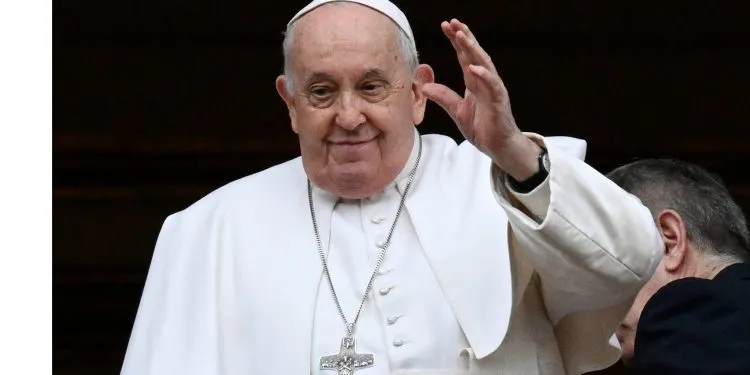Tributes from around the world are pouring in following the death of Pope Francis, the 266th Bishop of Rome and spiritual leader of the Roman Catholic Church, who passed away early Monday morning at the age of 88.
“At 7:35 this morning, the Bishop of Rome, Francis, returned to the home of the Father,” Farrell said in a solemn statement. “His entire life was dedicated to the service of the Lord and of his Church. He taught us to live the values of the Gospel with faithfulness, courage, and universal love, especially for the poorest and most marginalised.”
The Vatican later issued its own statement, echoing Farrell’s sentiments. “With immense gratitude for his example as a true disciple of the Lord Jesus, we commend the soul of Pope Francis to the infinite, merciful love of God, One and Triune.”
Francis, originally named Jorge Mario Bergoglio, hails from Buenos Aires, Argentina. He made history in 2013 by becoming the first pope from the Americas and the southern hemisphere. A trailblazer in many respects, he was also the first Jesuit to assume the papacy and the first non-European pope since Syrian-born Gregory III in the 8th century.
Final Days and Health Battles
Despite years of declining health, Francis had remained active in the weeks leading up to his death. He was hospitalised on February 14 at Rome’s Gemelli Polyclinic for treatment of bronchitis, a recurring illness exacerbated by a lifetime of respiratory issues. He had one lung partially removed at age 21 and frequently suffered from lung infections and pleurisy.
Even amid illness, the Pope remained publicly visible. On Easter Sunday, he surprised the faithful by riding through St. Peter’s Square in the popemobile, smiling and blessing crowds despite delegating the Mass to Cardinal Angelo Comastri. The Vatican confirmed that Francis had chosen not to lead the service himself due to breathing difficulties.
Just a week earlier, on February 9, Francis had presided over an outdoor Mass, though he opted to have aides read his homilies aloud.
A Papacy of Reform and Humility
Francis’s decade-long papacy was defined by reform, compassion, and a relentless focus on social justice. He chose to live in modest quarters rather than the Apostolic Palace and made outreach to the people of low-income backgrounds, refugees, and the LGBTQ+ community central to his mission.
“Francis challenged us to see Christ in the margins,” said Sister María González, a Spanish missionary who worked with Vatican charities under his guidance. “He made the Church breathe again.”
His death marks the end of a transformative era that saw a Church often struggling with scandal and division attempt to reorient itself toward the values of mercy, humility, and inclusion.
Legacy and What Comes Next

Francis succeeded Pope Benedict XVI, who shocked the world by resigning in 2013—the first pontiff in nearly six centuries to do so. For nearly a decade, the Vatican housed two popes: one emeritus, one reigning.
Now, the Church enters a solemn period of mourning before the next papal conclave begins. As per Vatican protocol, Cardinal Farrell will oversee the interregnum and preparations for the election of Francis’s successor.
Flags at the Vatican and across Catholic institutions worldwide are flying at half-staff.
In life and now in death, Pope Francis remains a symbol of a Church in conversation with the world.
“Francis showed us that leadership can look like tenderness,” said Cardinal Matteo Zuppi of Bologna. “He was a shepherd who never stopped walking with his flock.”



